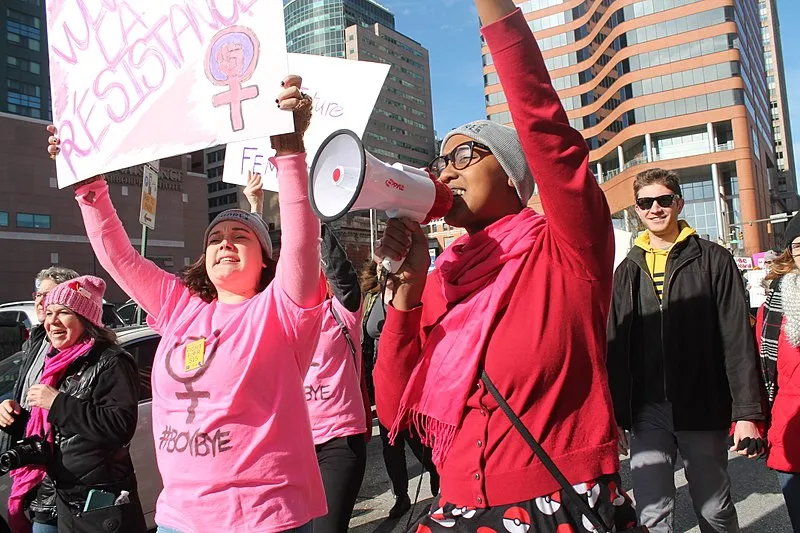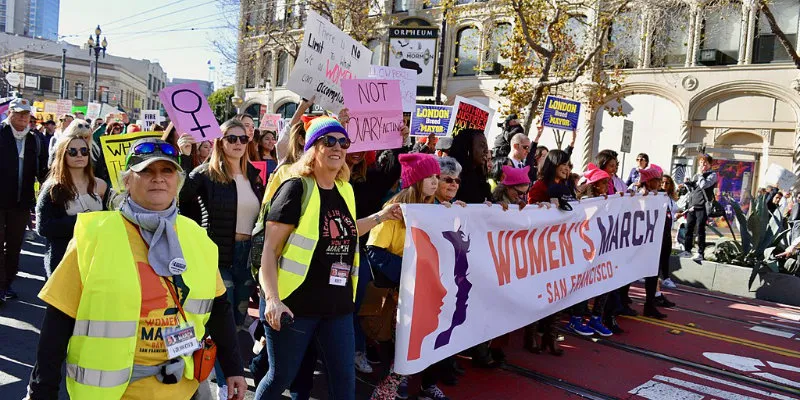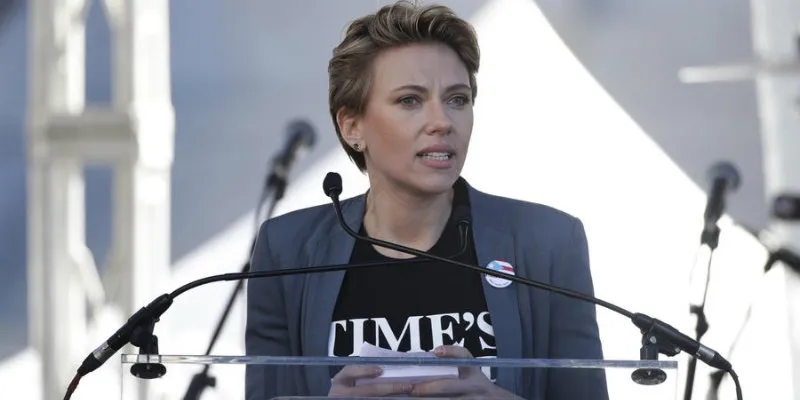In Round Two of the Women’s March, women show anger, rage, defiance, and resilience
Women returned in tens of thousands across Washington, New York, Los Angeles, Philadelphia and other cities of the US and the world in solidarity continuing the protest against racism, gender bias, and sexual assault.
This day, last year millions of men and women took to the streets in an extraordinary protest a day after President Donald Trump’s inauguration.


This year, in round two, they returned in tens of thousands across Washington, New York, Los Angeles, Philadelphia and other cities of the US and the world in solidarity yet again, with the Women’s March continuing the protest against racism, gender bias, and sexual assault.
The March was marked by many women wearing pink knit ‘pussy hats’, an enduring symbol of last year’s Women’s March and the rebuke of Trump. People marched the streets in droves, with their heads held high and waving painted signs for all to see.
These were the voices that were seen and also heard. The anger was more visible this year after a spate of revelations of sexual abuse against women, the #MeToo campaign and a widespread movement against sexual conduct among those in power. The signs were in no way subtle. They read, “’The future is still female”, “Women’s rights are not up for games”, “Nevertheless she persisted”, “Women united will never be defeated”, and also simply put, “I’ve had enough”.
In Washington, the Lincoln Memorial saw a group of protesters who held large block letters to spell ‘impeach’. It was evident none had forgotten and will not for a long time to come.
Los Angeles saw a smattering of celebrities like Natalie Portman, Viola Davis, Scarlett Johansson, Olivia Wilde and others joining the March in a long ceremony at the Grand Park. There were chants of “Hey, hey, ho, ho, Donad Trump has got to go” and “Girls Just Want to Have Fun-damental Rights” and the actors made impassioned speeches and called to remove the ‘sexist’ and ‘racist’ in the White House.

Scarlett Johansson on Saturday said, “I want my pin back, by the way,” alluding to Globe winner James Franco who wore the Time’s Up pin at the awards, but was later accused of sexual misconduct by five women. Without naming him (but confirmed by her representative later), she said: “How could a person publicly stand by an organization that helps to provide support for victims of sexual assault while privately preying on people who have no power?”
Viola Davis, another strong voice behind the need to change said: “I’m here today saying that no one and nothing can be great unless it cost you something. The originators of the Me Too’s; the Fannie Lou Hamers, the Recy Taylors, who in 1944 was gang-raped by six white men, and Rosa Parks. It cost them something. Nothing and no one can be great without a cost. I am always introduced as an award-winning actor, but my testimony is one of poverty. My testimony is one of being sexually assaulted, and very much seeing a childhood that was robbed from me. And I know that the trauma of those events is still with me today. That’s what drives me to the voting booth.”
In Australia, hundreds of women rallied in Sydney and Melbourne on Sunday joined their sisters in America and called for reform of sexual assault laws in Australia.
Hillary Clinton who lost in last year’s Presidential election to Trump tweeted her support and put it succinctly: “In 2017, the Women’s March was a beacon of hope and defiance,” she said. “In 2018, it is a testament to the power and resilience of women everywhere.”







